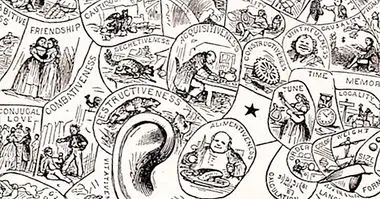5 beliefs that prevent facing changes in difficult times
For some time, I have proposed to be more aware of the impermanence present in the day to day. I have observed that, Although we know intellectually that things change, we do not really perceive that this is the case in daily life, unless it is very obvious changes or we decide to pay attention consciously.
We have this idea of continuity, solidity and permanence of things, situations and people in our lives.
- Related article: "Resilience: definition and 10 habits to enhance it"
The illusion of the denial of change
If we recognize that at some point they will change or leave, we do so thinking about a future, not the now. If things are going well for us right now, that future vision of change may scare us, we do not want to lose what we have . If they are not pleasant moments, there may be a mixture of longing for transformation and fear of remaining the same.
In fact, in difficult times, we usually think that our painful emotions and thoughts will never end. But, nevertheless, are the moments of greatest transformation .
However, the resistance and the ideas that we have about the change, contribute to our sensation of living a crisis when the difficulties arrive, to prolong and intensify the pain and to cause us unnecessary suffering. Many times fear can paralyze us despite knowing what life requires of us at a certain time.
We postpone again and again the actions necessary to flow with the change , because we do not tolerate the uncertainty of not knowing exactly where we are going. Or we rush to the action without measuring the consequences. Confidence is required in inner wisdom and in life itself.
Recognizing the impermanence of things transforms how we live
We begin to live day to day as if it were the last because we understand the finitude of life. We value the people we have at our side, we share that skill or talent we have today, we stop postponing the greeting to someone who has interested us.
We take the time to watch a sunset, because it is never the same. We stop identifying ourselves with the mental histories and emotions of the moment, even with our roles and identities since they are not fixed and unalterable either. We begin to love unconditionally, not as things go. We begin to love each other in the good and bad times and to love others too, in their impermanence.
- Maybe you're interested: "Resistance to change: 10 keys to overcome it"
Beliefs that take us away from adapting to changes
Living with true well-being implies knowing how to embrace the change and the inherent uncertainty of being alive. The beliefs we have about how life should be and how things should go have a great influence on coping with change, but we tend not to be very aware of them, until the time comes that proves us. Here are some beliefs.
1. Believe that our expectations and wishes must always be met.
It implies believing that life should always be pleasant and that things should always go well for us, according to the plan of life that we have. It is to seek constant security and forget the suffering and uncertainty that comes with life. When we think like this, we feel angry with people, life, the universe, and even with a higher power for not meeting our expectations . We believe that it is unjust and that, if others love us, including God, they should please our desires. We try to confront the situation by blaming that higher power, life or someone else.
This belief also affects impatience. It is to expect the immediate gratification of the efforts, to want to see the changes already made and not to tolerate the frustration. It is not wanting to go through the transformation process or do it quickly, but get your results. As Maya Angelou said "We marvel at the beauty of the butterfly, but rarely do we admit the changes it took to be what it is."
2. Tendency to think that the change is negative and painful
It is the frequency with which we anticipate the worst. To believe that the change or what is to come is negative especially if we like the way things are at the moment, makes uncertainty painful .
Although certainly not all changes are pleasant, the resistance we exert and the meaning we give to the experience makes it more difficult to face them and hurt more. For example, thinking that aging is negative hinders coping with age with dignity and ** can lead people to want to avoid it by damaging their health ** and appearance through the excessive use of aesthetic procedures.
In the same way, this belief forgets that life is a friend of the human being and that, although we often do not understand the meaning of certain events at the moment, the experiences of life are like treasures that contain the opportunity for inner growth and transformation.However adverse the experience may be, if we are willing, we can extract a valuable teaching to continue with greater openness our way of life.
3. Deceive and pretend that changes are not happening.
It is refusing to see reality. Sometimes there are things that have already completed a cycle in our life . It can be a relationship, some way of doing things that has become obsolete, a business, or an unhealthy lifestyle.
However, we can resist and drag the pain, maintaining the illusion that what has already been overcome will improve, expecting different results from the same actions or avoiding confronting the truth succumbing to the constant distractions of modern life. It is important to recognize when it is time to let go of something that no longer works in our lives and take different actions.
It is also unrealistic to wish or believe that the people, situations and things around us do not change, that will always be there or will be the same through the passage of time . Thinking about the people we love and are part of our lives, resisting change can reduce our ability to be with them in the difficult changes they experience.
Accidents and diseases They can change the appearance and affect mental and physical abilities in our loved ones. Can we continue to love and support them in the impermanence of these things? Can we continue to love ourselves if we are the ones experiencing these changes?
Finally, another way to deceive us is to believe that change is in the future and not now. We usually think that we are going to die someday, and not that this can happen at any time . This prevents us from enjoying each day as if it were the last, appreciating the present moment is pleasant or unpleasant and appreciating absolutely everything we have today without taking anything for granted.
- Maybe you're interested: "How to close an emotional cycle, in 6 steps"
4. Believe that you always have to know where you are going to take action.
Although there are changes that we make by choice, having a direction and reason in mind for why we do it, there are others, that are slowly evolving in our lives without even asking for them. For example, find yourself one day with the profession you chose is not what you thought or no longer makes you happy as before. Surely you would have liked not to reach that point of inflection in which circumstances and your feelings ask you to take a new direction, even more, when you have no idea what else to do ... or if you know, you do not know what will be around the corner or what will be the result.
Sometimes, you have to live a period of discovery of what follows , in which you are taking steps from intuition, but you do not know where exactly they take you.
When we do not know how to be with uncertainty, we make life transitions more difficult. How do you speed up the process? How do you force yourself to know what is not yet in you to know? We climb the mountain with perhaps an idea of what we can find, but we can never be completely sure.
We would love to know how our life will develop step by step, we want to be prepared . But it is a relief that this is not so, since we would miss much of the magic that life has and that is found in unknown territories. In not knowing are the surprises, and many of them can open doors to destinations you never imagined possible.
5. Believe that the value is dependent on what we do and have
It is the idea that the presence of certain things in our life define or determine personal worth . These things are usually external such as the presence of a socially appreciated physical appearance, good income, a good job, prestige, power, etc. It is not surprising that when these things change for a short or indefinite period of time a person feels that it is no longer valuable and that it costs him to handle the change.
This belief then forgets to recognize the unconditional and inherent value of human beings. The value is not comparable nor does it compete for it. Value does not have to be earned or tested because it already exists in us and does not depend on external factors. Continue feeding this belief is to live with a sense of unstable value that varies according to the presence or absence of these things and that decreases the ability to flow with the change.



















